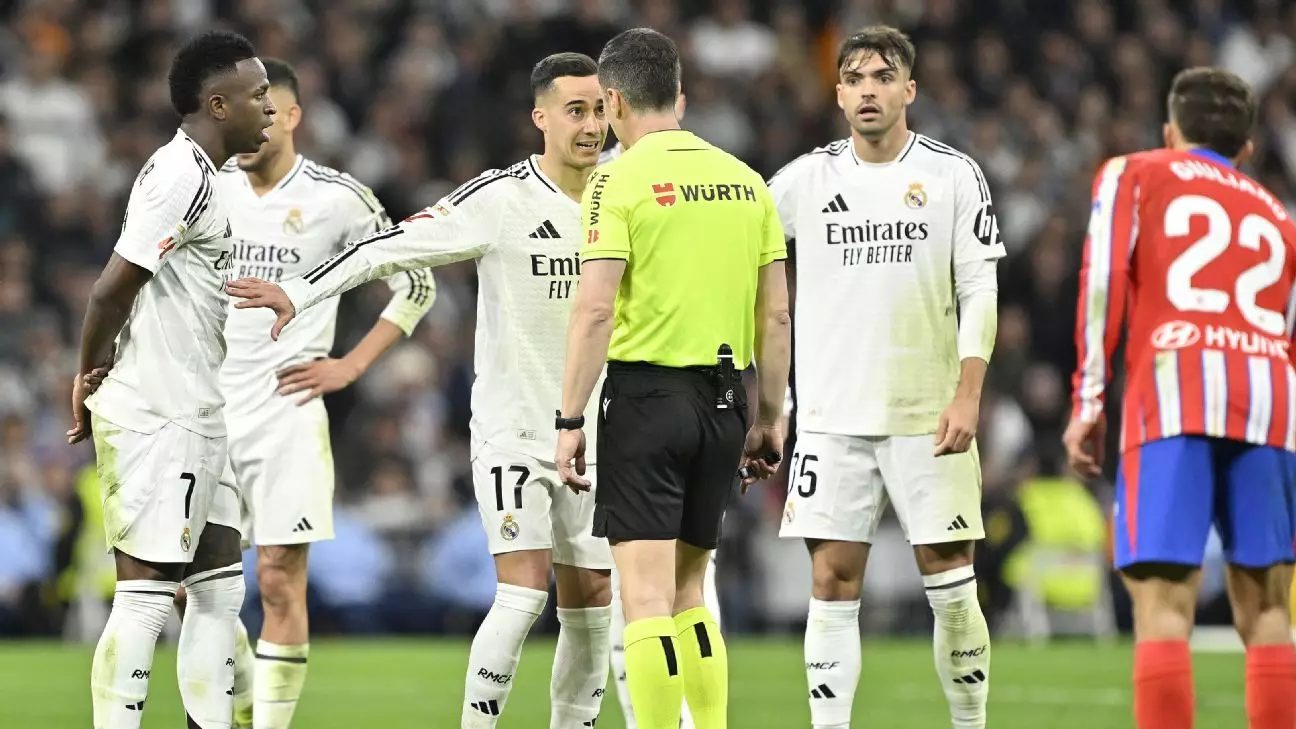The Madrid derby between Real Madrid and Atlético Madrid ended in a 1-1 draw, but what captured the attention of fans, pundits, and managers alike was a contentious penalty decision that left a significant impact on the match’s atmosphere and outcome. Carlo Ancelotti, the Real Madrid coach, expressed his frustration over the penalty awarded to Atlético, which was converted by Julián Álvarez in the 35th minute, following a VAR review that concluded Aurélien Tchouaméni had fouled Samuel Lino. This moment not only altered the course of the game but also reignited the often heated conversations surrounding refereeing and VAR’s influence in LaLiga.
Ancelotti’s response to inquiries about the penalty was notable for its brevity; he stated, “I’ll pass” when asked to share his thoughts. This reticence was grounded in the context of Madrid’s ongoing complaints about officiating standards. Just days prior, they had filed a formal grievance regarding the refereeing in their loss against Espanyol, prompting Atlético to accuse them of attempting to exert pressure on match officials. Such reactions highlight the ever-present tensions between clubs over officiating decisions, which frequently stir passionate debates within the media and fanbase.
The penalty decision directly influenced the dynamics of the match. While Ancelotti maintained that his team performed admirably, particularly in the second half, he couldn’t ignore the psychological toll the penalty took on his players. Madrid’s dominance, especially after they equalized through Kylian Mbappé, seemed clouded by their concerns over the officiating processes that had led to the penalty call.
Diego Simeone, Atlético’s manager, characterized the penalty decision as a legitimate outcome of the referee’s duties, emphasizing that interpretations of fouls are often subjective. He referenced a particular incident involving Real’s Dani Ceballos, whose yellow card challenged the threshold for foul play. Simeone argued that while some may deem Ceballos’s challenge worthy of a red card, others might not agree. This commentary reflects the complex nature of officiating, where each decision can be scrutinized, debated, and ultimately understood differently by various stakeholders in the game.
While Madrid’s executives have called for structural reforms in officiating, claiming the current system lacks integrity, it is imperative to remember that VAR was implemented to alleviate the burden of contentious calls. However, controversies like this derby’s penalties underscore ongoing challenges in achieving a universally accepted standard in the game.
The fallout from the derby serves as a potent reminder of the necessity for ongoing dialogue among teams, referees, and governing bodies. The issue of officiating is emblematic of the broader searches for integrity and consistency within the sport. As clubs become increasingly vocal about their discontent, it is essential for LaLiga to evolve and address these grievances constructively. Engaging in meaningful conversations about the rules and the application of VAR might pave the way for a fairer environment that serves not only the elite clubs but also enhances overall player and fan experiences in Spanish football.

